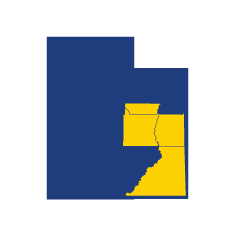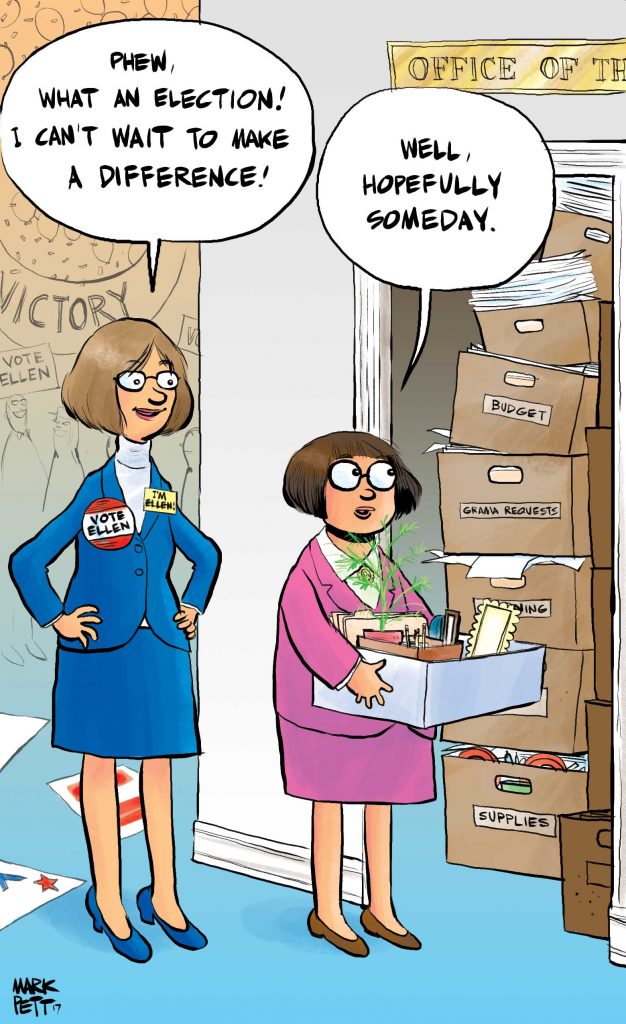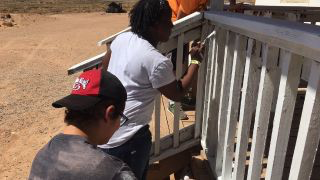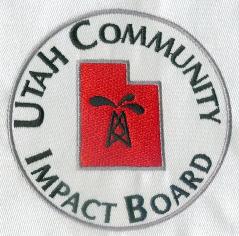Press Releases
Member County Press Releases
PRESS RELEASES: Southeastern Utah Association of Local Governments
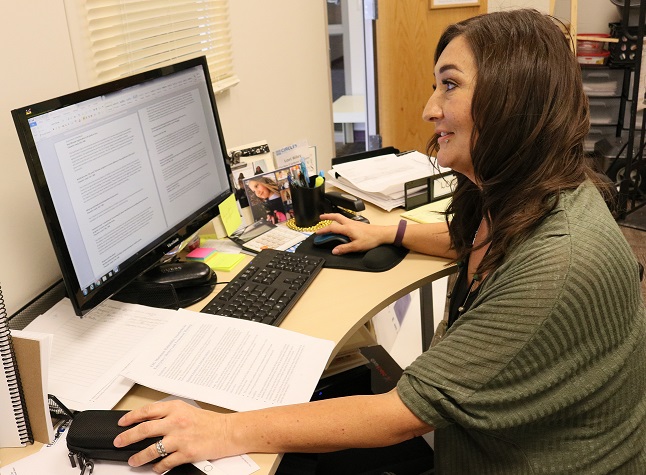
Pictured: Lori Riley, SEUALG Grant Writer
Southeastern Utah Association of Local Governments press release
Date of release: 10-15-18
HEAT program to come into full swing in November
The Home Energy Assistance Target Program (HEAT) will begin to take appointments for assistance starting November 1. The HEAT program is for those with low incomes who have a difficult time paying the cost of heating their homes during the winter months. Assistance is based on income (those that are at or below 150 percent of the federal poverty level) where the household is responsible for paying the homes energy costs and where the household contains at least one U.S. Citizen. Basically if someone makes less than $1518 per month, they generally will qualify for the program.
If for instance someone is making a little over the cap amount, and if they pay for prescriptions out of pocket, the cost of those prescriptions can be taken off the amount earned to qualify them for the program. That also applies to medical costs they pay for out of pocket. However this all requires the proper documentation from the prior month of their appointment and must be approved by the HEAT program administrators.
Those that wish to apply for the program can begin calling at 8:30 a.m. for appointments on November 1. For Carbon and San Juan counties the number is 435 613 0100. In Emery County the appointments will be taken at 435 881 5410. For appointments in Grand County call 435 259 6362.
All callers must speak to the receptionist to make appointments. Appointments cannot be made by leaving a message on voice mail.
A number of outreach efforts will also take place so that people do not have to travel as far to apply for assistance.
October 19. Navajo Mountain. Appointments will be made by the chapter house.
October 22. Castle Dale Senior Center, 10a.m. -12 p.m. First come, first serve.
October 24. East Carbon Senior Center, 9-11:30 a.m. First come, first served.
October 24. East Carbon City Hall, 1-3 p.m. First come, first served.
November 1. San Juan County Library in Blanding. Come first, first served.
November 8. Monticello Senior Center. Come first, first served.
November 14. Green River Epicenter. Come first, first served.
December 6. Monticello Senior Center. Come first, first served.
December 13. Blanding Senior Center. Come first, first served.
There will also be more outreach programs scheduled for Blanding and Monticello in January 2019 as needed.
For more information contact the HEAT program at 435 613 0100.
Why a stranger matters
Bread and Soup night, a series of evening events that happen each year in November at USU Eastern, is an important aspect of taking care of people in the local community. Here’s just one story that illustrates the importance of the contributions made at the events.
Lorianne Jones (not her real name) is a single woman that is 69 years old. She worked most of her life in low paying service jobs, raised three kids and was able to save literally nothing in her lifetime. In the last year she took on raising three of her grandchildren because her son went to prison and their mother disappeared into the drug world. Lorianne struggles to make ends meet; her social security is only $890 per month and she gets a total of $547 from the Supplemental Nutrition Assistance Program (SNAP). The rent on her small house is $400 per month. Her utilities amount to $200 per month. Those include electricity, gas and water.
Lorianne is a regular at her local food bank. She tries to get there each week in her old car and pick up food to help out. It used to be that she could get so much of what she needed, but things have changed. Now when she picks up once a week there is often only enough food for three or four days. With the food stamps she is able to make it stretch, but the nutrition her grand kids get is not adequate. They never get to eat much fresh fruit or vegetables. Meat costs so much at the store that she makes one pound of hamburger last three days.
Last month her car broke down and the local mechanic fixed it for her, but the cost was $500. He towed it in for free, but the parts amounted to over $400. He basically gave her the tow and his labor. He is also letting her make payments. He says he knows she will never be able to pay off the debt, but he feels sorry for her.
The above is not a far fetched story. It is a normal story for many elderly people. Even when they are not raising grandchildren, a single elderly person hardly has enough to eat if they are living on a fixed income. The disabled often have it worse. They have expenses that an abled person does not have, yet their income is no more.
In most cases, to those reading this, these people are strangers. They live in a different world than the reader does. But everyone should know that the percentage of people who struggle is high in Carbon County, and is increasing all the time.
As the population grows older the number of elderly people in the community is going up and many do not have 401Ks, savings or means other than social security for support. A trip to the doctor, or worse, the hospital, can wipe out anything they have been able to save. And as people get older, those kinds of things happen more often. For these people there is no eating out, no vacations or trips, not even cable television or internet.
It’s easy to dismiss those less fortunate than ourselves. They are invisible, unless one really looks for them. But at least one probably lives on your street. It’s also easy to look at them, if they are noticed and say “They made their own bed.”
Well maybe they did, and they also may have made your bed at one time when you stayed in that nice hotel across town. Or when they cooked your steak at that great birthday party you had for your son. Or when they filled the shelves and cashiered for you many times at the local convenience store.
But the past is the past…today is what counts and watching people, even complete strangers struggle, should not be easy even if your belly is full, you have a nice house to live in and drive a nice car.
This is why strangers matter.
While people donate a lot to causes in this country, the poor and disadvantaged are often left behind because people think that “someone, probably the government, will take care of them.”
In many cases your dog eats better than people on fixed incomes.
People in need can get help in various ways. For instance there is information about the SNAP food program from the Department of Workforce Services at https://jobs.utah.gov/
But little things can also change the scenario that plagues Lorianne. She could get enough for her family to eat from week to week if the food bank had more resources. People really do donate to the food bank, particularly during the holidays. But those donations go out fast and in January when all the Christmas lights have come down the shelves get pretty thin. The summer is also a lean time despite food drives by the Boy Scouts, the United States Postal Service and many schools that help out. Donations are always needed.
By attending Bread and Soup night on the campus of USU Eastern in the Jennifer Leavitt Student Center each fall community members can help even more. They will eat and pay for bread and soup and the money they spend will go to the Carbon County Food Bank. It is a way to get dinner and have the money a person pays go to help these strangers. The food bank donation each year from the university that is generated by this event is key to putting food on the shelves of the pantry.
“When the scouts would knock on my door during a food drive, I had always been one of those people who simply ran to my pantry to pull out last year’s can of artichoke hearts from a failed recipe, or threw in my can of tomato soup just to participate,” said Carrie Icard who is an English professor at USU Eastern and also runs the Bread and Soup Night there. “I understand now, after 20 years of doing Bread ‘N Soup Night, that what’s going on in our community requires much more consideration than that. Because of what we’ve been doing at the university, I can feel that I made a greater effort to serve, but more importantly, also gave others a chance to do the same.”
This year those Bread and Soup nights will be on November 5th, 12th and 19th. The evening starts at 5:00 p.m. and ends at 7:30 p.m. or when the soup is gone.
Bread and Soup night is not a pity party. It is an event to honor those that are not as fortunate as others, people who are important because they are part of our community and peoples lives everyday. They are the people, who in their time, did things for everyone else, so that others could have a good and happy life.
That is why strangers matter.
Southeastern Utah Association of Local Governments press release
Date of release:10-09-18
Contact person: Richard Shaw, contract public relations specialist
Phone: 435 636 5343
Email: reddogpublish@gmail.com
CDBG training coming up on November 7
Each year some local government officials and those that work with non-profit agencies that wish to apply for grants from the Community Development Block Grant program must go through a training on how to apply for funds. This year that instruction will take place in Monticello on November 7 and in Price on November 8.
The CDBG Program provides annual grants on a formula basis to states, cities, and counties to develop viable urban communities by providing decent housing and a suitable living environment, and by expanding economic opportunities, principally for low– and moderate-income persons.
“We have all kinds of officials attend this training including mayors, county officials, people from special service districts and from non-profit organizations,” said Jade Powell who is over the CDBG program for SEUALG. “I do have to remind people though that if they are from a special service district or from a non-profit they must be accompanied to the training with an official from their county or city.”
Attending the workshop is a prerequisite for applying for funds from the program, largely because each year the details and the parameters of application process change. Attendees receive a workbook that instructs them on policies and procedures when applying for the grants, which includes a checklist so no item required for the grant applications is omitted. The grant application process itself is done on-line.
“One of the most important aspects of the workshop is so those that are applying understand the expectations of the grant,” said Powell. “The criteria for awarding the grant can be different from region to region. Our emphasis is more on housing while another area might be on such things as infrastructure. Those things can change so that is why they must attend the workshop every year.”
He said there are a great number of policies that have changed this year from last. There is a board that meets every year (people from the AOG’s region) and formulates the new rules for the grants. When grants are submitted they are evaluated by a point system depending on many factors and then are granted based on the scores.
He said that this year there is more emphasis on how many people a grant will help on a per capita basis that will give the grant the “biggest bang for the buck.”
“For instance if a town wants to do a water line that is only going to benefit 10 people, while another town wants to redo an entire water tank which will benefit an entire town, the tank project will get more points,” he explained.
Powell said that while there is an invitation list already sent out to agencies SEUALG is aware of, there may be non-profits that want to attend as well.
The meetings in San Juan County will take place at the San Juan County Building conference room at 1 p.m. on November 7. In Price on November 8 the meeting will be held at the SEUALG offices board room at 9 a.m.
He said he will attempt to keep the meeting to one hour in length.
For more information contact Powell at 435-613-0022 or he can be emailed at jpowell@seualg.utah.gov.
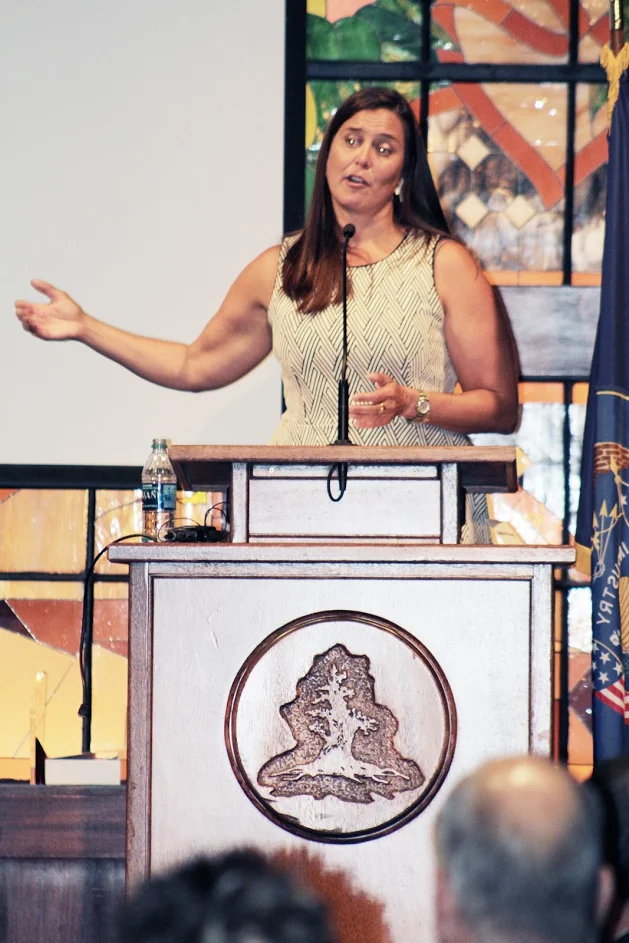
SEUALG personnel find relevance Governors Rural Summit
Date of release: 08-27-18 Contact person: Richard Shaw, contract public relations specialist Phone: 435 636 5343 Email: reddogpublish@gmail.com
Members of the staff of the Southeastern Utah Association of Local Governments attended that Governors Rural Summit in Cedar City on August 2-3 and found themselves coming back with a wealth of information and ideas for the agency to use.
On Thursday morning the event began with a panel of people in general session talking about the Opioid problem in rural Utah. The panel talked about the problems and various kinds of solutions that are being used across the state. From the southeastern part of the state Debbie Marvedakis, who works with the Southeastern Utah Health Department spoke about measures that are being tried in Carbon County to combat the seemingly ever increasing problem.
Immediately after Doug Griffiths, the author of the book 13 Ways to Destroy Your Community presented the keynote address and spoke about how things are changing so rapidly and continually and he gave a good demonstration of how business and government must evolve to stay ahead of the curve when it comes to technology and the changing business atmosphere in the world.
Later that day Governor Gary Herbert spoke about rural development and the ideas he has for moving the needle forward when it comes to growing economies in the areas outside the Wasatch Front. He also spent a good deal of time talking about something that all Utahns are familiar with this summer, wildfires and why they are seemingly becoming more frequent and intense each year. He made it plain that he felt that the management of the forests in the state has not been as good as it could be and he feels the state could do a better job if they were doing it rather than the federal government. Many states have state forest lands, but Utah is not one of those. All public forests in the state are national forests.
On Friday Lieutenant Governor Spencer Cox and his co-chair of the Utah Governor’s Rural Partnership Board spoke about various things that are going on in rural Utah and what the board does. They are a fairly large committee and help give direction for rural development and work with the Governors Office of Economic Development (GOED).
Also on the docket that day was Sarah Calhoun, who is the owner of Red Ants Pants, a Montana firm based in the small town of White Sulpher Springs, Montana. Originally from Connecticut, Calhoun went west after reading a book by a man who grew up in the town and founded the firm. Her company makes work wear for women, and as she put it “work wear that fits women.” Her company uses all American made materials and the clothing is made by Americans, some of them in her small town and other independent contractors spread across the country. She also started the Red Ants Pants Festival each summer in the small town which draws thousands of people to the berg of 600. A foundation she founded also supports rural communities, women in leadership roles and traditional work values. In 2011 she was named Montana Entrepreneur of the year.
Throughout the conference many workshops were also put on. Some of them included Engaging the Workforce of the Future, Addressing Rural Utah’s Housing Crisis, Rural Health care Priorities, Utah’s GIS Mapping and Technical Assistance Program, United States Department of Agriculture/Rural Development Tools and Resources, Natural Resource Issues Affecting Utah, the Rural Online Initiative, Growth from the Ground Up ( the Governors Office of Economic Development) and Wildfire Mitigation and Biomass Opportunities.
“I believe strongly in Rural Utah,” said Geri Gamber the Executive Director of SEUALG. “The Rural Summit this year offered best practises in technology, Rural Online Initiative, GIS and many other pertinent ideas and processes that only enhance agencies success stories. We are all in this together, and the Rural Summit is about collaborative efforts. I had a plethora of ideas to take home and begin my own collaborative effort for Southeastern Utah.”
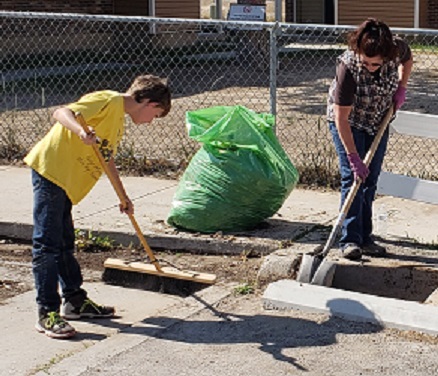

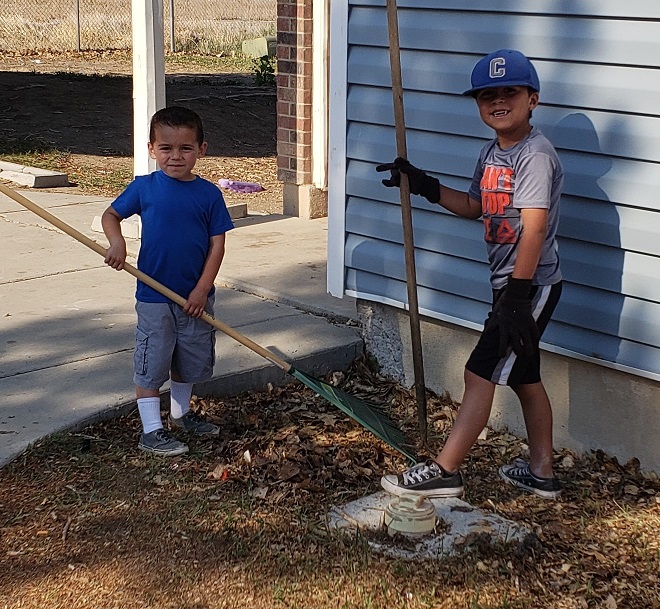
Southeastern Utah Association of Local Governments press release
Date of release: 07-01-18
Contact person: Richard Shaw, contract public relations specialist
Phone: 435 636 5343
Email: reddogpublish@gmail.com
SEUALG programs can help those that qualify with Housing Rehabilitation
The Southeastern Utah Association of Governments (SEUALG) offers a number of programs to help people repair their homes if they fall into certain categories of the population. Assistance can come in the form of loans or grants that can be used for replacement of things that are in poor condition and other sources of money are for emergency repairs that may be needed in a home.
First there is the Single Family Housing Rehab Program Loan. This loan is utilized for the improvement or repair of homes to provide decent safe and sanitary housing. The loan amount to do that has to fall within 95 percent of the value of the home. This loan fund is available in Carbon, Emery, Grand and San Juan counties. The AOG actually does around 23 of these types of projects each year. People who qualify for this loan are either elderly, disabled or low income families with children under 10. The interest on these loans is between 1-3 percent on a 20 year term note. Low income determination is based on an areas medium income (AMI). In terms of this loan a family can be at 80 percent of the AMI and qualify.
Under these same monies (the Olene Walker Loan Fund) there are also emergency grant funds, which can range up to $4,999.99 that can be awarded based on income. This money can be used for such things as a broken sewer or water line, or something that threatens the use of the home for those that live there. These emergency grant funds handled by the agency are not loans and do not need to be paid back.
SEUALG has a contract with the state to administer these programs. Some of the loans available can be leveraged with grants to cover the projects costs. For instance, another type of grant known as Community Development Block Grant (CDBG) fund can be used in that way. These funding sources can be utilized for the elderly, disabled or low income families who have children under 10. Households at 60 percent of the AMI or below may be eligible.
At SEUALG Barbara Fausett is the Self Help and Housing Rehab Program Manager and she supervises nearly a half dozen programs which can help people in various ways with their housing in the San Juan, Grand, Emery and Carbon county areas.
“On a case by case basis, we can leverage a project with CBDG grant funds up to 80 percent of AMI,” explained Fausett. “That happens when we leverage 50-50 with the Olene Walker Loan funds. By doing that we can get funds for households with over a 60 percent AMI.”
There is also the United States Department of Agriculture (USDA) 504 Loan/Grants program for helping people with repairs on homes that they already own, as well. These funds come to the agency on a case by case basis and there is no set contract for the amount of money available to the agency each year. These monies come in the form of a grant that can range up to $7500. These loan/grants are for people 62 and older with an AMI of 60 percent or below. The program is prioritized on the basis of need. The money from the grant/loan is used for safety and sanitary purposes.
In any case work that is done with these loans and grants must be accomplished by a licensed and insured contractor. The agency has a list of approved contractors who do the work. Each approved job has at least two bids to ensure these funds are used efficiently so they can assist as many households as possible.
“We screen the contractors to make sure they are licensed, insured and are stable businesses when they are doing the work,” she said. “And of course we try to make the money go as far as it can. We also try and get in and out of the home as quickly as possible. Usually a project takes one to two weeks, depending on the size and the scope of the work.”
Approximately one third of all lower income houses are substandard units. The objective of SEUALG’s housing program is to assist low income families, elderly and disabled homeowners with a safe, decent, affordable and accessible living environment.
Interested parties can go on-line to the SEUALG website at http://seualg.utah.gov/ and fill out an application. They can also contact Fausett at 435 613 0026 or email her at bfausett@seualg.utah.gov.
Home sweet home can be a reality for some with AOG programs
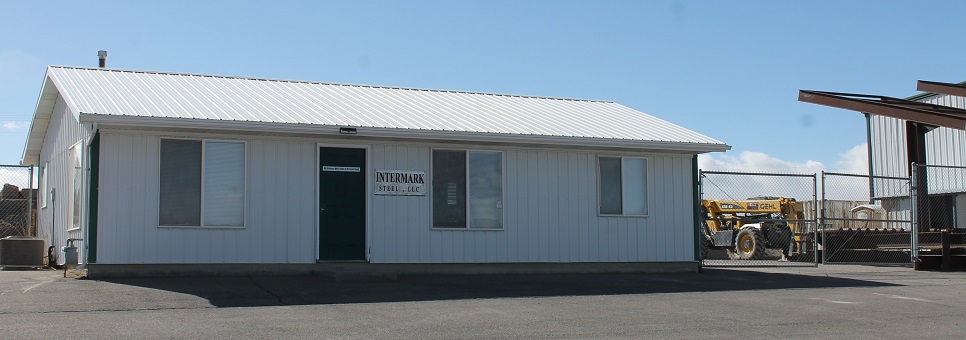
Regional News
A new bus line will soon offer free transportation along 18 stops between Old Spanish Trail Arena and Lions Park. The bus will run along Main Street, operating from 7 a.m. to 10 p.m., seven days a week in Moab, Utah.
Read more:Moab Times-Independent – Moab People Mover to offer free transport through town
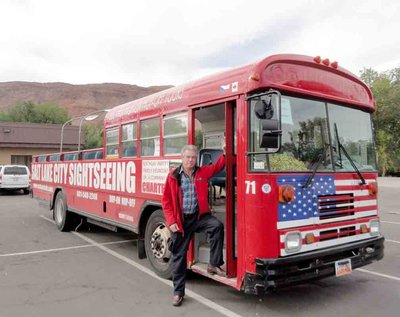
State Officials, Volunteers Shore Up Navajo Homes Against Desert's "Brutal Winds"
Click on the Picture below to view the article and video from KSL.com

